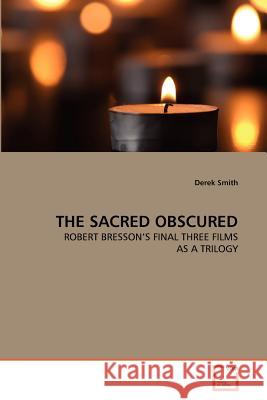The Sacred Obscured » książka
The Sacred Obscured
ISBN-13: 9783639352825 / Angielski / Miękka / 2011 / 152 str.
Robert Bresson's films are often discussed in terms of their spiritual nature in relation to Bresson's Calvinist upbringing. While this is an effective strategy for interpreting most of his films, a shift in his later work occurs where the absence of God is felt amidst the chaos of the worlds he portrays. While grace was prevalent in the director's earlier films, his later films focus on despair in the face of an inaccessible God, presenting characters that are unable to transcend the material world. This book explores the new role spirituality plays in his final three films and how this reflect a change in his vision of man's relationship to God in the modern world. It examines the ways he continues to work spirituality into these films while portraying world's where the presence of the sacred is increasingly obscured and suppressed. Examining these ideas presents us with the interesting dichotomy of films which contain spirituality within their stylistic and narrative traits yet portray worlds where God is nowhere to be found and aims to shed new light on the oeuvre of a director who still holds a strong influence on modern filmmakers and cinephiles alike.
Robert Bressons films are often discussed in terms of their spiritual nature in relation to Bressons Calvinist upbringing. While this is an effective strategy for interpreting most of his films, a shift in his later work occurs where the absence of God is felt amidst the chaos of the worlds he portrays. While grace was prevalent in the directors earlier films, his later films focus on despair in the face of an inaccessible God, presenting characters that are unable to transcend the material world. This book explores the new role spirituality plays in his final three films and how this reflect a change in his vision of mans relationship to God in the modern world. It examines the ways he continues to work spirituality into these films while portraying worlds where the presence of the sacred is increasingly obscured and suppressed. Examining these ideas presents us with the interesting dichotomy of films which contain spirituality within their stylistic and narrative traits yet portray worlds where God is nowhere to be found and aims to shed new light on the oeuvre of a director who still holds a strong influence on modern filmmakers and cinephiles alike.











